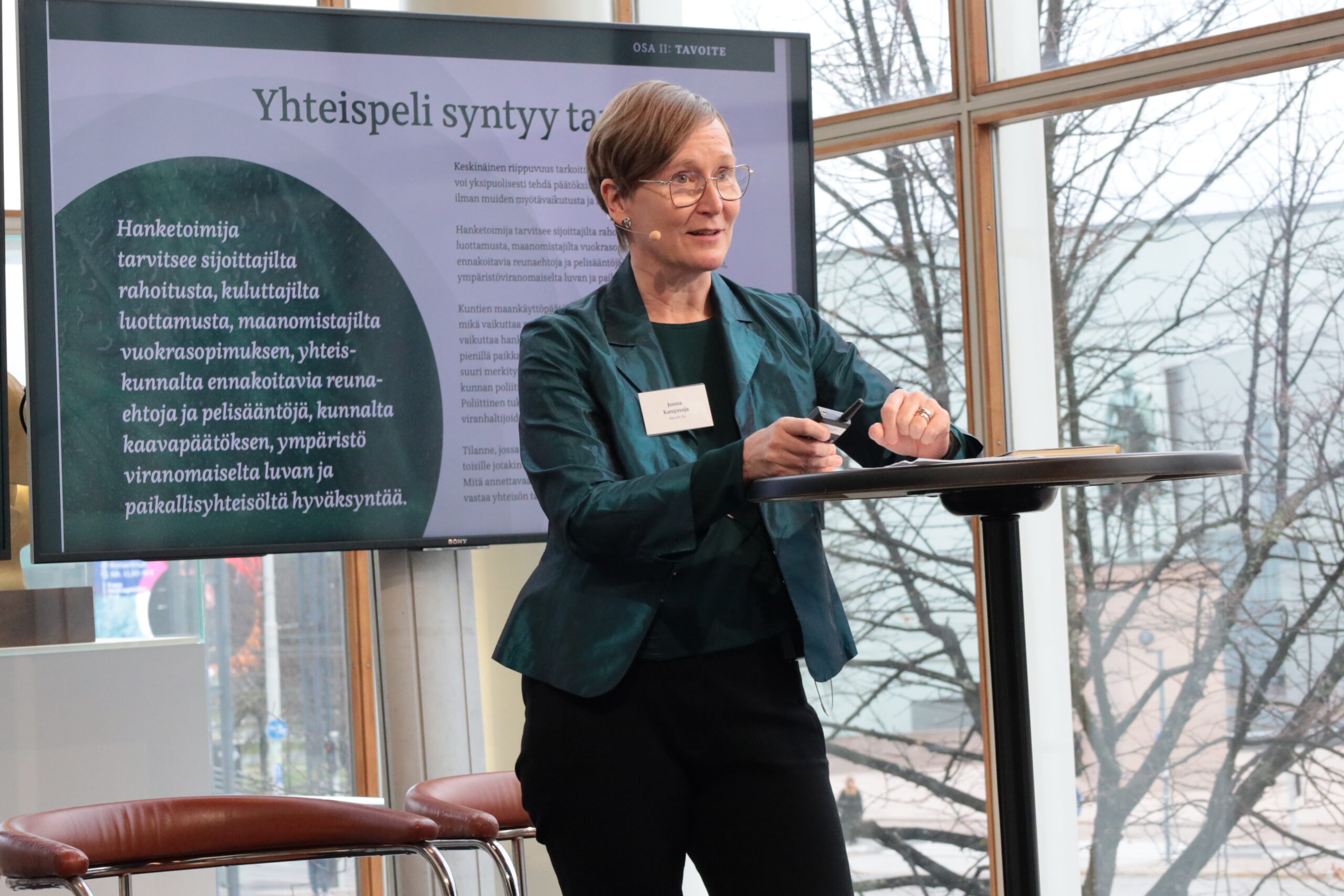The green transition is materializing in a growing number of industrial and infrastructure projects in specific locations. While the projects aim at emission-free energy and production, the downside is the change in land use and the potentially negative environmental and social impacts. Balancing the pros and cons of green transition projects is not an easy task. As a result, the social acceptability of new projects is becoming one of the most critical prerequisites for the success of a sustainable transition.
In many cases, green transition projects generate contradictions and conflicts at the local level. Parties to these conflicts include project developers, local politicians and officials, and various community groups and environmental NGOs.
The transition to a green economy involves so-called “green on green” conflict situations, where projects favorable to climate change mitigation, such as those related to renewable energy, raise local concerns and opposition due to their impacts on water bodies and biodiversity. These projects require space and infrastructure, and it is impossible to fully avoid environmental impacts.
Accelerating the green transition through national and EU-level measures, such as fast-tracking permitting or providing economic incentives, can increase the challenges of local acceptance. Criticism may intensify and become an issue if the transition is perceived as “overbearing” and seen to be progressing at the expense of environmental quality, citizen participation or thorough impact assessments. The balance between these is critical to acceptance: while the goals of the transition may be accepted, they will not be accepted at any cost.
Tension and conflict result in both direct and indirect costs to project developers and stakeholders. The most obvious consequences are project delays or cancellations. Conflicted projects may need to be redesigned or rescheduled. For example, a project canceled due to a local government decision can result in significant write-offs, especially if the project was well underway. In addition, managing escalated conflicts incurs unforeseen costs such as lost sleep, CEO time, damages, administrative and legal clarification, and unexpected communication needs.
The indirect effects of conflict include damage to a company’s reputation, which can affect customer and investor confidence and potentially increase financing costs. In addition, conflicts can create broader social tensions, such as divisions within the local community or between interest groups. They can also lead to political setbacks or “disciplinary measures,” such as increased regulation.
From a regional economic perspective, conflicted, delayed and canceled projects can result in economic losses for the region, such as employment opportunities and additional investment that do not materialize.
In conflict situations, it’s common to either try to avoid the conflict or to seek victory over your opponents. Akordi’s view of conflict is that conflict is a necessary symptom of change. Conflicts make visible the values that are considered worth fighting for.
Conflict is a catalyst for action. At its best, conflict can be the impetus that brings parties together to find new solutions and a better way forward. At their worst, conflicts escalate and become destructive for all involved. This is why anticipating and resolving conflict is paramount in the green transition.
On a global scale, the stakes are high: the viability of life forms and species. It is clear that everyone will lose if the green transition fails. Conflicts in the green transition cannot be avoided, so we had better learn to resolve them together.
To support this critical work, we put together a publication called the Green Transition Playbook. It is based on our experience that even the most difficult conflicts related to land use and natural resources can be solved together.
Conflict resolution is not easy. It takes time and effort. However, we have witnessed disputing parties take significant steps forward: pausing to reflect, agreeing on common ground rules, take on new, more constructive roles, defining better outcomes, and pursuing them in collaboration.
Our work is based on the theory and practice of conflict resolution and multi-party negotiation. The same principles and methods are in many ways broadly applicable to the everyday challenges of the green transition.
This first edition of the Playbook focuses on the early stages of project development and offers proven tools for thinking and acting. These tools can help build better interaction, collaboration and trust, which are essential for project acceptance. However, when conflicts do arise, they can be addressed constructively and resolved with the help of an independent mediator.

Jonna Kangasoja is the CEO and co-founder of Akordi, a mediator in multilateral negotiations on environmental conflicts.

